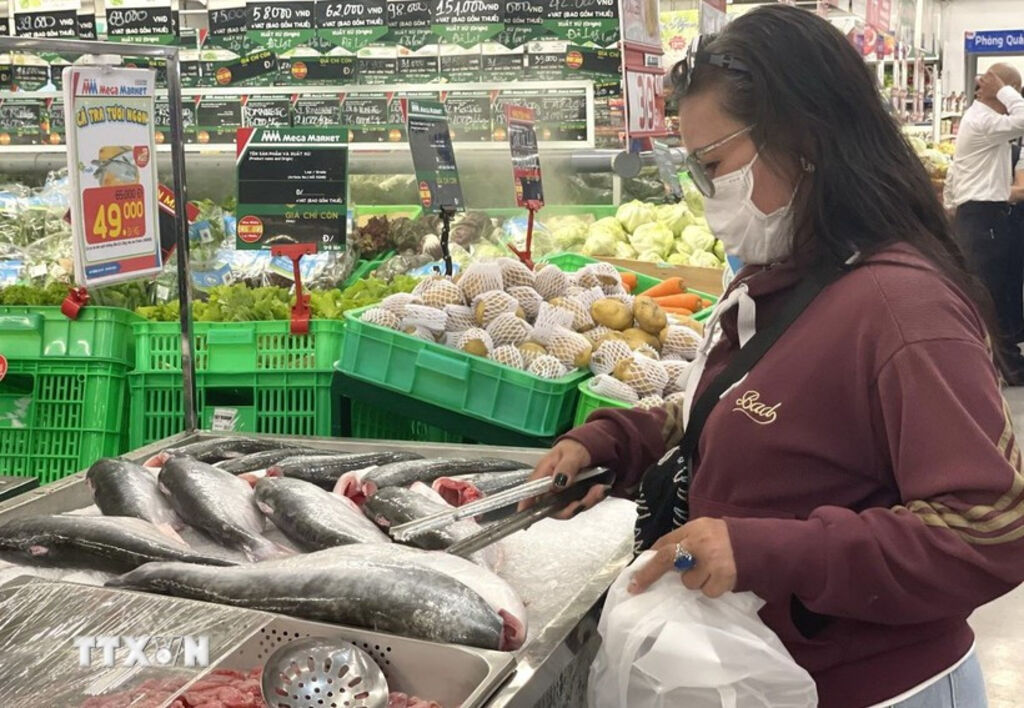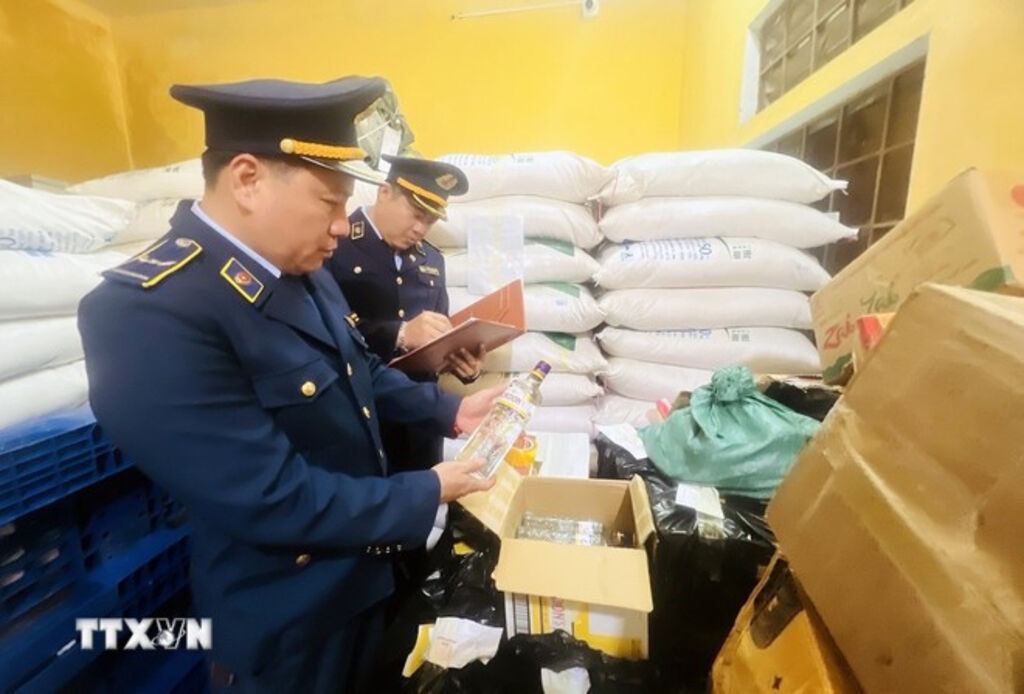 |
| A consumer chooses seafood products at a supermarket__Photo: VNA |
The Secretariat has requested Party committees, Party organizations, and state management agencies at all levels to thoroughly grasp and vigorously implement the tasks and solutions outlined in its Directive No. 30-CT/TW dated January 22, 2019, on strengthening the Party’s leadership and the State’s management in protecting consumers’ rights.
In the Secretariat’s conclusion issued on November 10 on continuing the implementation of the Directive, Party committees, Party organizations, and all-level state management agencies are urged to focus their leadership and direction on key tasks, including protecting consumer rights on cyberspace; clarifying inter-sectoral responsibilities in goods control; analyzing and assessing consumption trends in the digital era; and effectively combating the production and trade of counterfeit goods and imitations.
The conclusion stresses the importance of promptly reviewing and fully institutionalizing the Party’s new policies and orientations into laws on consumer protection and related sectoral laws to ensure coherence, comprehensiveness, and effectiveness. It also calls for thoroughly addressing legal gaps to keep pace with modernization, digitalization, and international integration.
Attention must be given to reviewing and clearly defining the authority and responsibilities of the Government, ministries, central agencies, and local administrations, as well as political, social, and professional organizations in protecting consumer rights, the directive states. It also underscores the need to promote appropriate decentralization based on implementation capacity; strengthen inspection and supervision efforts; and clearly specify the responsibilities of the head of each agency, organization, and unit.
 |
| The market management force inspects goods__Photo: VNA |
The conclusion calls for the urgent completion of legal regulations related to consumer protection in the digital environment and in special transactions, especially cross-border transactions, ensuring absolute security and safety of consumer information. It also requires clearly defining the responsibilities of businesses in ensuring product traceability to promote market transparency, and prevent and combat counterfeit, imitation, untraceable, and low-quality products.
It orders studying a roadmap to align Vietnam’s standards and regulations with international standards; strengthening the effectiveness of inspections and supervision by regulatory agencies; reviewing and adjusting sanctions and penalties; and strictly addressing the deliberate production and trafficking of counterfeit, imitation, or substandard goods on a large scale that threaten public health and safety, thereby ensuring strong deterrence and educational impact.
The conclusion clearly stresses the request for breakthroughs in law enforcement to ensure that consumer protection laws are implemented fairly, promptly, and effectively.
It calls for enhancing coordination mechanisms and clearly defining inter-sectoral responsibilities among relevant agencies and organizations in controlling domestic and imported goods, to prevent violations and provide timely alerts.
It is necessary to foster a culture of legal compliance and placing consumers at the center of business operations, while encouraging and supporting businesses and individuals to research, apply, and develop science and technology and drive innovation aimed at green production and consumption, improved customer service, product traceability, market transparency, and analysis of consumer trends in the digital era, the conclusion stated.
The conclusion asks for greater efforts in raising awareness and responsibility among the political system, officials, Party members, political and social organizations, professional associations, and the public in managing, supervising, and protecting consumer rights; promoting the effectiveness of the “Vietnamese people prioritize using Vietnamese goods” campaign; strengthening international integration, and enhancing information and experience sharing in handling cross-border consumer disputes and combating high-tech crimes in consumer transactions.
It demands diversifying methods of disseminating policies and legal education for consumer protection; and promoting the role of industry and business associations, and traditional craft villages in guiding businesses and economic organizations to comply with standards and quality regulations for goods and services, combat the production and trade of counterfeit, imitation, and substandard products and services, and protect intellectual property rights.- (VNA/VLLF)









